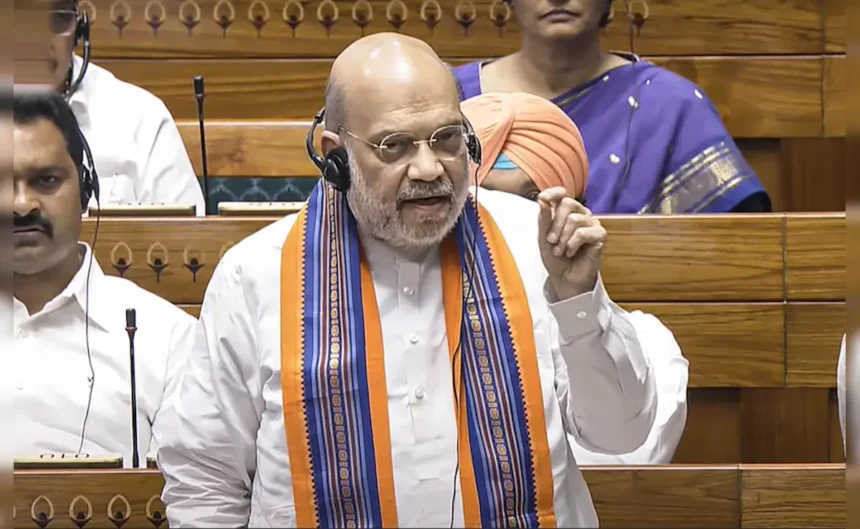Union Home Minister Amit Shah is scheduled to move a motion in the Rajya Sabha today, seeking the House’s approval to form a Joint Committee of Parliament on three key bills. The legislation includes amendments to the Constitution of India, the Government of Union Territories Act, 1963, and the Jammu and Kashmir Reorganisation Act, 2019.
As per the Rajya Sabha’s list of business, the motion proposes that 10 members of the House be nominated by the Deputy Chairman to serve on the Joint Committee. The committee will examine the proposed amendments and provide recommendations.
The official list states: “That this House concurs in the recommendation of the Lok Sabha that this House do join in the Joint Committee of the Houses on the Bill further to amend the Constitution of India; the Bill further to amend the Government of Union Territories Act, 1963; and the Bill further to amend the Jammu and Kashmir Reorganisation Act, 2019, and resolves that ten Members of this House be nominated by the Deputy Chairman to serve on the said Joint Committee.”
Meanwhile, several other parliamentary papers and committee reports are scheduled to be laid on the table by Union Ministers Gajendra Singh Shekawat, Kirti Vardhan Singh, Naresh Bansal, Rajendra Gehlot, Niranjan Bishi, and Sumitra Balmik.
The Bharatiya Janata Party (BJP) issued a three-line whip to its Rajya Sabha MPs, directing them to be present and support the government’s motion.
Parliament witnessed uproar on Wednesday over the opposition’s demand for a debate on the Special Intensive Revision of electoral rolls in Bihar. While the IIM (Amendment) Bill was passed by the Rajya Sabha, the government introduced the three bills in the Lok Sabha, which were then sent to the Joint Committee.
The Constitution (One Hundred and Thirtieth Amendment) Bill, 2025, tabled by Amit Shah, seeks to remove any Central or State Minister facing allegations of corruption or serious offences who has been detained for at least 30 consecutive days. Under the proposed law, if a Prime Minister, Chief Minister, or Minister does not resign within 30 days of detention on charges punishable with five or more years of imprisonment, their office will automatically become vacant after 31 days. The bill also allows for re-appointment post-release. (Agencies)

